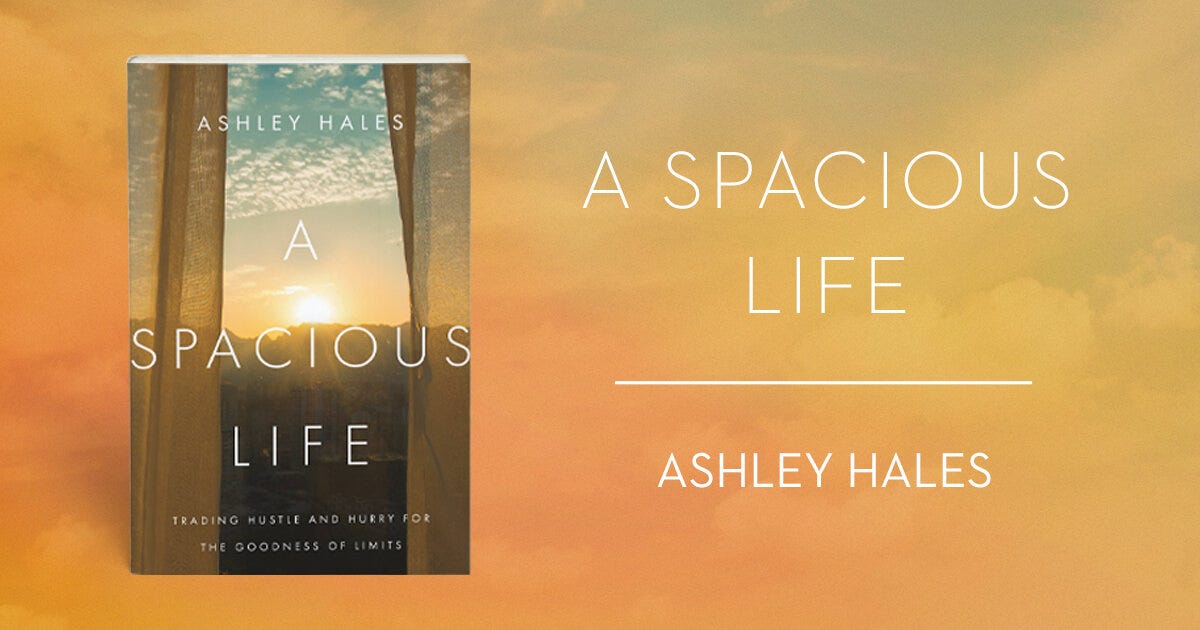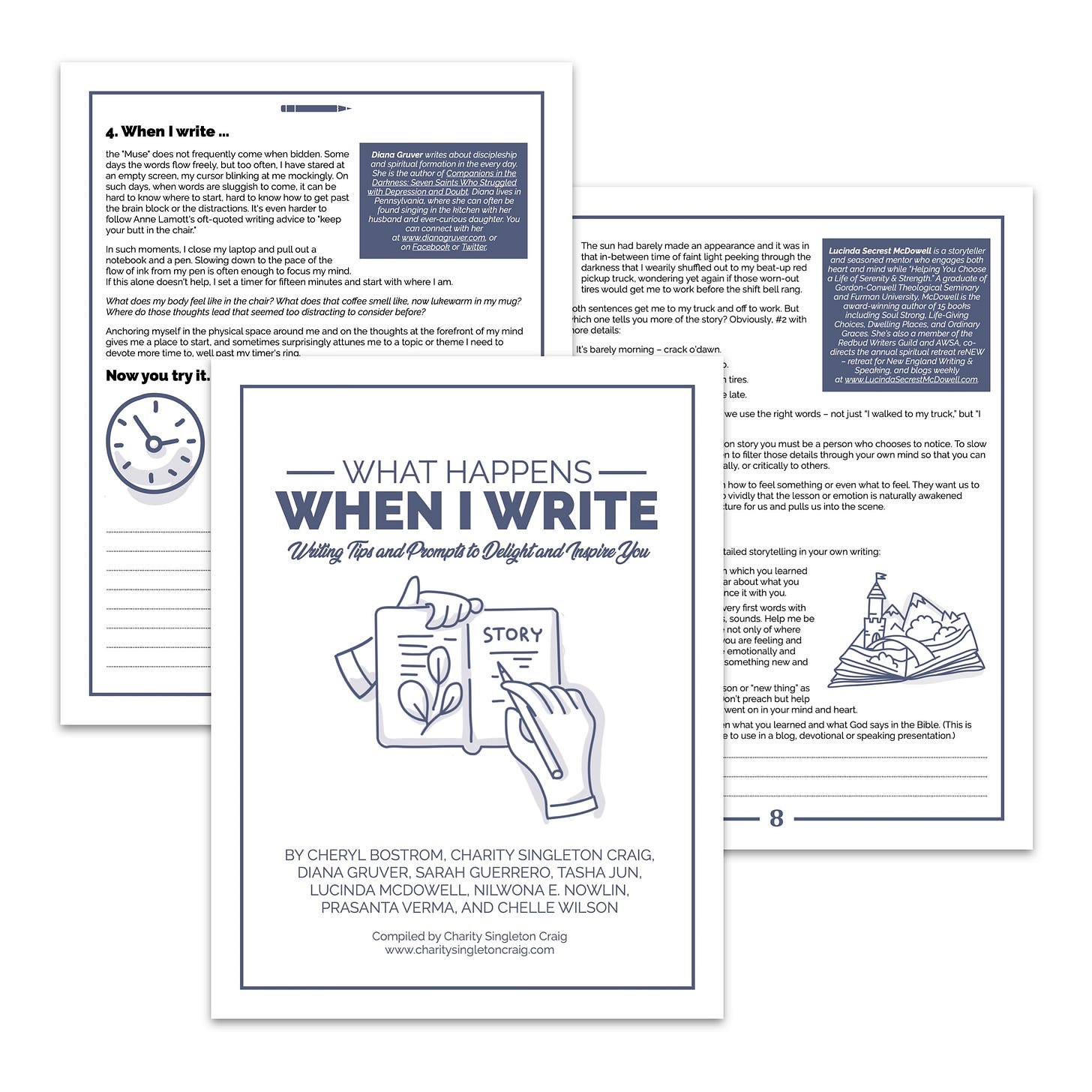The Wonder Report: January 21, 2022
Human Limits
Happy Friday!
Last week, when I began our conversation about this in-depth project we’re all living called “being human,” I threw around the word “human” like it’s something we’d all understand. Like the definition of being human is outlined in the human handbook we’re all given at birth.
In some ways, there’s an element of truth to that. Not the handbook part, but the part about knowing what it means to be human. We’re all human after all. But the way we function as humans can be very different, as different as the actual number of humans. And the context in which we are human—this world—doesn’t always make being human so easy. Since being human hasn’t been so good up to this point, for some of us, being more human sounds kinda crummy.
So what do I mean when I say that the world we live in is inhuman? And even more, what am I talking about when I call us to be more human despite the odds we’re facing?
Let’s talk about it.
1. The Limits of the Humanity
On Wednesday, Steve and I were driving back from dinner out with friends. We had a 45-minute trip ahead of us, and since it was cold outside, I’d turned on the seat warmer when I climbed in the car. Within minutes, the warmth moved through my body. I felt myself melting into the leather seat.
“I’m so tired,” I said, struggling to keep me eyes open.
“Me too,” Steve said.
“I’m like the most tired I’ve been in a long time,” I said. “It’s like it’s painful to be awake.”
What could Steve say to that?
The twinkling lights of houses blurred by us, and I found myself staring at the soft glow of the moon in the Eastern sky. … And then, I was abruptly shaken awake by the turn onto our street and then the bumps of the pot-holed alley that leads to our garage.
“I’m so tired,” I said again, this time with the grogginess of actual sleep filling my head with fluff. I grabbed my things, followed Steve into the house, and promptly went to bed while Steve stayed up with the dogs for a few extra minutes.
::
Being human is like that … it comes with built-in limits. And being sinful humans only increases the limits we’re forced to live within. We’ll never be perfect: we make mistakes and miscommunicate and hurt people’s feelings—sometime on purpose. We get sick and fall down and fall asleep at the wheel. We suffer at the hands of others and don’t always respond well. We forget to love. We often forget to love.
But the limitations of being human don’t all result from sin. Even in a perfect world, as humans, we still wouldn’t be able to go and go and go. We’d have to stop sometimes, too. We can’t survive without nourishment and hydration. We have to eat and drink. We can’t work all the time, we can’t always be alone, we can’t know the future, we can’t remember every detail about the past. Some of us can’t lift more than our body weight … most of us can lift only about half that much. We can’t speak every language or see through walls or travel through time, no matter how much we want to.
For many of us, these limits or constraints are the hardest parts of being human. We race the clock, we stretch the budget, we fudge the rules, we push the margins, we stay up too late, we eat more than we should, we always try to get just a little more …. because if we can move the line on our limits, then life will be better. That’s what we think.
But it’s wrong. Because living within our limits is not the problem of being human; it’s the goal. We have limits because we belong to God, and “belonging necessitates limits,” writes Alan Noble in You Are Not Your Own: Belonging to God in an Inhuman World*. “If we belong to God, then knowing and abiding by His limits enables us to live as we were created to live, as the humans he designed us to be.”
How do we know this? Because God himself became a human, a perfect, sinless human. And despite remaining fully God at the same time, when he became a human, he took on the limits of humanity. He had a body—a baby body at first, then a body that grew and changed and aged. He lived in the limits of a place: first century Palestine. He was born into a family. He had a small circle of friends. He was subject to the political and religious corruption of his day, and ultimately, his limitation became so severe that he was imprisoned, tortured, and executed, all to save us from our sin.
Because God is God, I’m assuming that he could have resolved the problem of human sin in lots of different ways, the most obvious of which would be to wipe out humans for good. He came really close to doing just that during the great flood recorded in Genesis. But the fact that God ultimately chose not just to “solve the problem” but to actually save humans themselves from the ravages of sin by sending his son to become human and take on its limits seems to indicate that he was pretty committed to this project of humanity.
Despite all that’s happened since “in the beginning,” God still believes that the men and women he created in his own image, the humans he made according to his likeness, are still very good.
Now, if we could just believe it too.
::
It seems lots of people are talking about being human lately. Kate Bowler’s No Cure for Being Human* wrestles with the frailty of the human condition. Kelly Kapic’s You’re Only Human* teases out some of these same differences between the limits of sin and the limits of being human. Another book on my shelf, Late Migrations*, by Margaret Renkl explores how the natural world helps us become more human. And of course Noble’s book, You Are Not Your Own*, which I talked about in more detail last week, talks about becoming more human in an inhuman world.
Maybe people are talking more and more about what it means to be human because it’s becoming harder and harder to do so—to actually be human. To be fair, since the first humans rebelled against the limits God set for them, being human has been a struggle. But as technology continues to tease us with an existence absent of limits, we’ve lost our appetite for constraint. We’re hard pressed to accept boundaries of any kind, especially those imposed by others. We’re convinced that we can do anything we set our mind to. We have solutions to problems we don’t even have yet.
And still we struggle.
It’s in that space—where our highest ideals meet life’s starkest reality—that we’ll meet. It’s where we’ll wonder together what can be so good about being human. It’s where we’ll find an abundance of goodness and mercy in saying enough to the excesses of the world. It’s where we’ll marvel over the reality that if being human is good it’s because our Creator designed it that way.
I wonder … do you ever think about what it means to be human? What limits does your humanity force upon you? How do you resist them? How do you accept them? Does the presence of sin in the world change the way you think about limits? What about sin in your life? Do you think there will be limits in heaven? Finally, does technology make you feel less human? How? What are ways that you can use technology in a more human way?
2. A Spacious Life: Trading Hustle and Hurry for the Goodness of Limits by Ashley Hales
As I explore limits as part of what it means to be human, this book is high on my to-read list. I particularly love that the subtitle includes the phrase “goodness of limits,” which seems like such a contradiction to so much of what we experience in the world.
Here’s how the publisher describes A Spacious Life: “Contrary to what we've believed, the spacious life is not found in unfettered options or accomplished by our hustle and hurry. The life we crave is found within the confines of God's loving limits. Ashley helps us recognize that when we live within these boundaries, we discover a life filled with purpose, joy, and rest. This is the spacious life―finding true freedom within the good limits given to us by our good God.”
Unfortunately, my copy of Ashley’s book is now packed away until we move, but I can’t wait to read more about the freedom of limits and the possibility of becoming more human by surrendering to what holds me back.
3. “What If We Just Stopped Being So Available?” by Joe Pinsker
One of the ways technology has made us less human is by creating the expectation that we are always available. To be fair, it’s probably a human misuse of technology that created the expectation, but either way, here we are. And the reality is, we can’t always be available. Our very human limits mean that sometimes we simply aren’t free to answer text messages or respond to emails, and frankly, we shouldn’t be. I love the way Pinsker dances around the language we use to apologize for not being available to help us realize what’s really at stake … and where we should go from here.
4. When I Write …
One place I often come up against the limits of being human is in my work as a writer. Often, I find myself staring at the blank page or stuck with too much life and not enough writing.
Of course the writing life is immensely personal and as different among writers as the people living it. It’s impossible to look at another writer and see exactly what the writing life will look like for us. But that’s not to say we can’t learn from the writing lives of others, which is often the way I begin to imagine myself writing again when I’m stuck: I see how others are doing it.
It’s in this spirit that last summer, I invited eight members of The Redbud Writers Guild to join me in explaining what happens when we write and to invite fellow writers along with prompts to try out the tips for themselves. Some of these prompts are about the writing process, others are about the writing life. All of them are honest and beautiful and inspiring.
Now, I’ve compiled them all in a short booklet you can download and use to help you in your own writing life.
What happens when YOU write? Join us to find out.
Well, you’ve come to the end of another Wonder Report. As always, thanks for joining me here. It’s a privilege to share this space with you and to enter into these conversations together. It’s my favorite part of my writing life.
As always, if you’d like to send me a note or ask a question, you can hit reply and end up in my inbox. Or you can also leave a comment on this newsletter, which will live in the archive over on Substack. It’s one of my favorite features of this platform.
Until next time,
Charity






“We forget to love. We often forget to love.” So good, Charity. I can so relate to the limits of our humanity when setting and achieving work (writimg) goals. Personally, finding myself in the midst of caring for my elderly parents and juggling that with family, I’ve been frustrated by and, in turn, learning so much about the limits of time and human energy! I am sure there are gifts in discovering this as well, so I love that you are exploring this. And yes! Absolutely to your point about the problem of our devices making us constantly available. Or in making us feel that we should be.